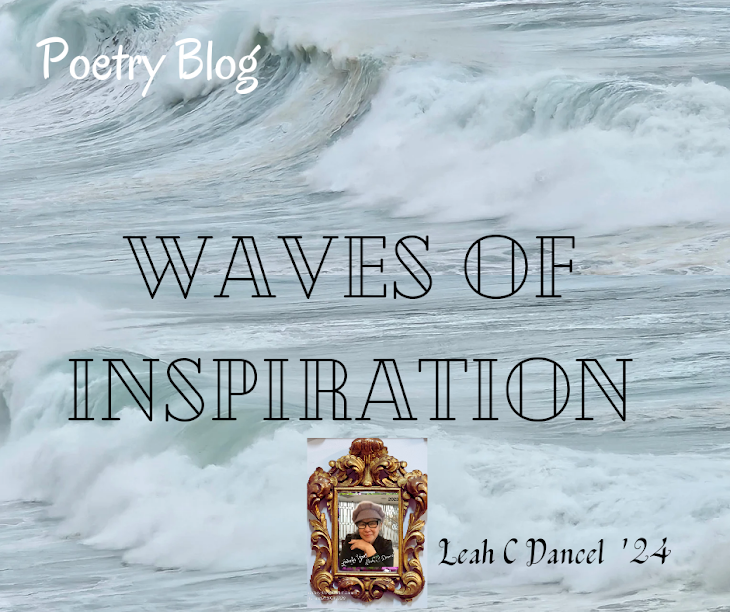18 April 2024/FB
"DAFFODILS"
(I Wandered Lonely As A Cloud)
By William Wordsworth
I wandered lonely as a cloud
That floats on high o'er vales and hills,
When all at once I saw a crowd,
A host, of golden daffodils;
Beside the lake, beneath the trees,
Fluttering and dancing in the breeze.
Continuous as the stars that shine
And twinkle on the milky way,
They stretched in never-ending line
Along the margin of a bay:
Ten thousand saw I at a glance,
Tossing their heads in sprightly dance.
The waves beside them danced; but they
Out-did the sparkling waves in glee:
A poet could not but be gay,
In such a jocund company:
I gazed—and gazed—but little thought
What wealth the show to me had brought:
For oft, when on my couch I lie
In vacant or in pensive mood,
They flash upon that inward eye
Which is the bliss of solitude;
And then my heart with pleasure fills,
And dances with the daffodils.
Analysis;
"I Wandered Lonely as a Cloud" (also commonly known as "Daffodils") is a poem by William Wordsworth that is known for its celebration of the beauty of nature and its ability to bring joy and happiness in times of despair. The poem is written in the first person, with the speaker describing their own personal experience of wandering through a field of daffodils.
The poem is divided into four stanzas, each of which describes a different aspect of the speaker's experience. The first stanza sets the scene and describes the speaker's feeling of loneliness as they wander through the countryside. The imagery of a cloud floating over hills and valleys evokes a sense of isolation and detachment, which contrasts with the vibrant and joyful scene that the speaker is about to encounter.
The second stanza describes the moment when the speaker comes across a field of daffodils. The imagery of the daffodils stretching in a "never-ending line" along the shoreline creates a sense of awe and wonder, and the comparison to the stars in the Milky Way emphasizes the vastness and beauty of the scene. The use of the word "host" to describe the daffodils also suggests that they are not just a random collection of flowers, but an organized and purposeful group.
The third stanza describes the speaker's emotional response to the scene. The use of words like "gay" and "jocund" suggest that the sight of the daffodils has brought the speaker a sense of happiness and pleasure. The phrase "I gazed—and gazed—but little thought / What wealth the show to me had brought" suggests that the speaker did not fully realize the impact the daffodils would have on them until after they had seen them.
The final stanza describes the lasting effect of the daffodils. The use of the phrase "And then my heart with pleasure fills / And dances with the daffodils" suggests that the sight of the daffodils has lifted the speaker's spirits and brought them a sense of joy and happiness.
The poem is also known for its use of imagery, particularly the image of the daffodils dancing in the breeze, which creates a sense of movement and liveliness that contrasts with the stillness and isolation of the opening lines. The poem also makes use of personification, as the daffodils are described as "dancing" and "tossing their heads" which imbues them with human-like characteristics and adds to the lively and joyful nature of the scene.
____ ^*^ ____
12 August 2024
A more thorough analysis in expanded form as elucidated by ENGLISH LITERATURE Page to which this credit is due.
DAFFODILS
BY WILLIAM WORDSWORTH
"I Wandered Lonely as a Cloud" (also sometimes called "Daffodils") is a lyric poem by William Wordsworth. It is one of his most popular, and was inspired by an encounter on 15 April 1802 during a walk with his younger sister Dorothy, when they saw a "long belt" of daffodils on the shore of Ullswater in the English Lake District. Written in 1804, this 24 line lyric was first published in 1807 in Poems, in Two Volumes, and revised in 1815.
It is a quintessential Romantic poem that celebrates the beauty of nature and the profound emotional connection between the natural world and the human soul.
SHORT SUMMARY:
The poem begins with the speaker, who feels lonely and detached, comparing himself to a cloud that floats high above valleys and hills. This image sets the tone for the poem, emphasizing the speaker's isolation from the world around him.
However, this loneliness is soon alleviated when the speaker encounters a "crowd" of golden daffodils beside a lake, fluttering and dancing in the breeze. The sight of these daffodils is uplifting, and Wordsworth uses personification to give them a life of their own. The flowers "toss their heads" and "dance," creating an image of joy and movement that contrasts sharply with the speaker's earlier solitude.
The daffodils are described as being "continuous as the stars that shine," suggesting their vast number and the endless beauty they represent. This comparison to stars also imbues the scene with a sense of timelessness and eternity, as if the daffodils are not just a fleeting moment of beauty, but a lasting source of inspiration.
In the final stanza, the speaker reflects on how the memory of the daffodils brings him comfort even when he is alone or in a "pensive mood." The daffodils become a symbol of inner peace and joy, capable of lifting his spirits and filling his heart with pleasure. This enduring emotional impact illustrates the Romantic belief in the healing power of nature.
THEMES:
1. NATURE'S HEALING POWER: The poem underscores the idea that nature has the ability to console and uplift the human spirit. The sight of the daffodils provides the speaker with solace and joy, both in the moment and in memory.
2. THE IMPORTANCE OF MEMORY: Wordsworth highlights the significance of memory in preserving the beauty of nature. The daffodils are not just a temporary delight but a source of lasting happiness, stored in the speaker's mind.
3. SOLITUDE AND CONNECTION: The poem explores the contrast between solitude and connection. While the speaker starts in a state of loneliness, his encounter with the daffodils fills him with a sense of connection to the natural world, alleviating his isolation.
4. ROMANTICISM: The poem embodies key elements of Romanticism, such as the emphasis on emotion, the celebration of nature, and the exploration of the individual's inner experience.















